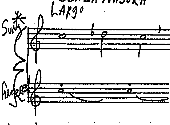A three judge panel of the Ninth Circuit Court of Appeals decided Newton v. Diamond, et. al., an appeal from summary judgment in a copyright infringement case against the Beastie Boys, brought by jazz musician James W. Newton, Jr.
This appeal raises the difficult and important issue of whether the incorporation of a short segment of a musical recording into a new musical recording, i.e., the practice of “sampling,” requires a license to use both the performance and the composition of the original recording. The particular sample in this case consists of a six-second, three-note segment of a performance of one of his own compositions by plaintiff, and accomplished jazz flutist, James W. Newton. The defendants, the performers who did the sampling, are the members of the musical group Beastie Boys. They obtained a license to sample the sound recording of Newton’s copyrighted performance, but they did not obtain a license to use Newton’s underlying composition, which is also copyrighted.
The district court granted summary judgment to the defendants. In a scholarly opinion, it held that no license to the underlying composition was required because, as a matter of law, the notes in question — C – D flat – C, over a held C note — lacked sufficient originality to merit copyright protection. Newton v. Diamond, 204 F. Supp. 2d 1244, 1256 (C.D. Cal. 2002). The district court also held that even if the sampled segment of the composition were original, Beastie Boys’ use was de minimis and therefore not actionable. Id. at 1259. We affirm on the ground that the use was de minimis.
(via How Appealing)
More analysis from Ernest Miller: Beastie Boys Sampling Not Infringement